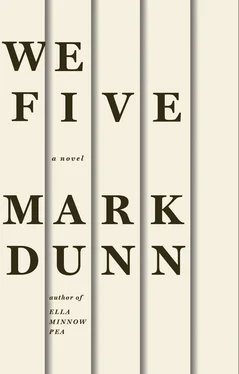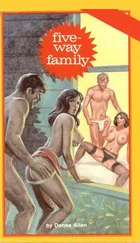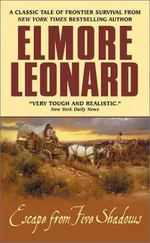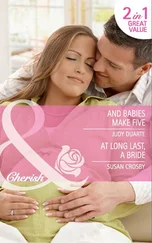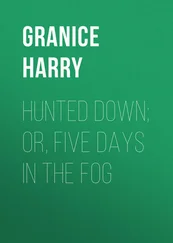And whatever was Higgins to do about it? Catts had been the first man ever to pay Jane more than casual notice. And were not disreputable overtures better than no overtures at all? It was a puzzlement, and he would sit with his porter and puzzle it out even after the two left the pub, directed for someplace he knew not.
Lyle Higgins would sit for upwards of a full minute. And then…
“Begging your pardon, lads,” said Higgins, after decamping from his chair and tottering with tangled steps to the table next to that previously occupied by his sister and her spurious admirer. “Did you happen to overhear any of what was said by the two what was just here?”
“Aye,” said the older and slightly more sober of the two young men. “What is it you’d be wanting to know?”
“Whither he was taking her. That’s the thing.”
“And why, pray, would you be wanting to know such a thing as that? Have you a claim upon the girl?”
“It depends on how you mean the question. She’s my sister.”
“Ah. Now that is a horse of a very different colour,” said the older man. “So I’ll tell ye. There was mention of the emporium. Would you know the place?”
“Indeed I would.”
“Is the man up to no good?”
“I don’t know it for a fact. I only know that I’ve crossed paths with his like afore.”
“Then join us for one last pint as be a send-off to rescue your sister from a fate unknown.”
Higgins bethought himself of the merits of the proposition and concluded that one drink more — strictly for the purpose of lubricating his steps in service to his mission of potential rescue — could do little harm, and perhaps very much good.
Jane Higgins and Tom Catts walked in the High Road with slow, careful steps to mask their having just spent the last two hours drinking intoxicating beverages at a public house (though Jane’s incapacitation was far greater than her companion’s). “You say you have a brother?” asked Catts, as Jane placed her hand upon his arm to steady herself.
“I have a brother, yes.”
“And he lives with you in the back of the family shop?”
Jane nodded.
“Yet you know with certainty he won’t be there at this hour.”
“With certainty I know this.”
“And how is it, Miss Higgins, that you are so confident in this belief?”
Jane stopped in her place. She looked at Catts with a mischievous twinkle in her eye. “Because that was him sitting at the table by the old clock — the one drinking alone and slipping into his wonted state of daily hibernation. He’ll not show up until all the chickens have gone to roost, he being the one confused cockerel that sometimes forgets where it even lives.”
Catts laughed hardily. “Miss Higgins, you are perhaps the most delightfully clever young woman I have ever met.”
“And is cleverness my only attribute?”
“Not by any measure, my dear woman. Allow me to enumerate your other fine traits when we are finally alone.”
The two went along thusly. But unbeknownst to Jane, they did not go along unobserved. For Jane was, in fact, being most closely watched by her friend Ruth through the window of a mutton pie shop. Only moments before, Ruth had slipped guiltily inside that establishment after bidding adieu to her friend Pardlow following their after noon tea. Though she had imbibed three cups of the tasty beverage, yet it was a most gastronomically unsatisfying hour and a quarter, for there was naught to be had of a victual nature — not even a fragment of a caraway-seed biscuit or a crumble of an old gooseberry scone. Thus a much-famished Ruth now stood alone in a dark corner of the shop gobbling a crusty meat pie with ravenous shame, and being glad the proprietor was nearly blind and did not identify her, until such point as that familiar gait, that instantaneously recognisable tall and gangly presence abroad, caught her eye.
Ruth betook herself to the window to get a better look, and there-through saw the thing for what it was: her friend Jane being led away by one who appeared to revel in her lurching debility. In that frightful moment Ruth knew there could be nothing propitious to be gleaned from their companioned procession in the lane. On the contrary, Ruth believed Jane to be careening down the path to dire consequence.
The well-being of her friend being more important to Ruth than the last three or four bites of mutton pie, she fled the shop with all due haste and bent her hurried steps to the doctor’s infirmary to enrol Carrie in her mission of rescue (for any confrontation effected by Ruth singly would be misinterpreted by its recipient as officious intrusion in the customary Ruth Thrasher manner).
There was one other familiar to the reader who was at the Fatted Pig. This one sate drinking grog and a great deal of it, which was not a good thing, since the man of reference was one who had pledged himself to absolute temperance: Molly’s father, Michael Osborne. Osborne was drinking to steal himself away from thoughts of Sylvia Hale and from his ineffective attempts to minister to her in the wake of the tragedy of her house catching fire from a toppled candelabra. It was right in his mind that he should do so, for not only did he know the good woman and felt her to be his friend, he also considered himself to be a legitimate member of the healing profession. Yet when he attempted to offer assistance to her through the herbs and other unconventional treatments he had learnt during his years of itinerate practise, he was insolently driven from the premises by the town doctor and made to feel small and unworthy in his adopted line of work.
And as Osborne took stock of his life and tallied the reputable paths he might have taken, which had eluded him, and faced the sad verity that he was in fine neither healer nor the best provider for a wife and child who had died in his deficient custody, and was not by any means the best claimant upon the heart of anyone, let alone the woman he now wished to marry, and was not nearly the prosperous and sober-headed father he should have been for his daughter Molly, he sank into a pit of despair and self-doubt, and then, by and by, into a state of wretched self-loathing, which caused him to drink ever the more and to lose all sense of himself.
In her dream Molly found herself in the middle of a field of daisies, or was it pennywinkles or marigolds or sunflowers? Yes, it was great sunflowers, bent like genuflecting Mussulmans from the weight of their Brobdingnagian seeds. She wandered amongst the flowers and did not know if she should be happy in their crowding presence or affrighted, for there were a good many of them and they choked her path and rose up to her own height. And there seemed traces of something lurking behind them — creatures of some mysterious sort. Lurking, Molly wondered, or merely abiding? Was there a human form to the creatures? If so, were they known to her? Dreams are never unambiguously revelatory, and sometimes they are not revelatory at all. So Molly was happy to have done with this one when into the field intruded the sound of a hand rapping upon a door. There being no doors in the out-of-doors, Molly found in this incongruity reason to waken herself. Once she had come fully to herself and realised the knocking had not suspended, it became incumbent upon her to rise and discover the identity of the visitor to the rooms she shared with her father over the stationer’s and prints-seller’s shop (for there was no maid or footman to do it, and of her father’s whereabouts at the moment she had not the faintest idea).
With no need to dress, for she had lain down upon her bed without bothering to take anything off or to put anything on which was more appropriate for retirement, Molly plodded sleepy-eyed to the door that communicated with the public corridor and found, when she opened it, the young man who had touched her heart as no man had ever done before.
Читать дальше
